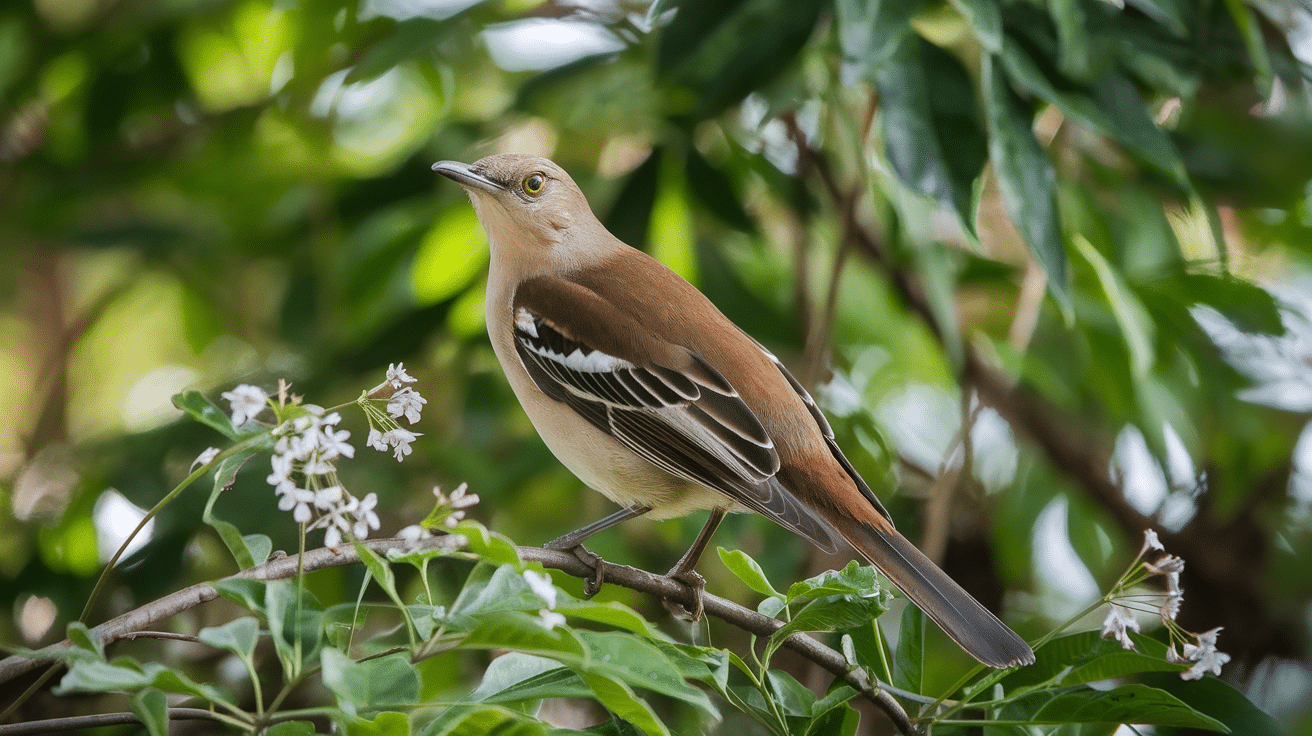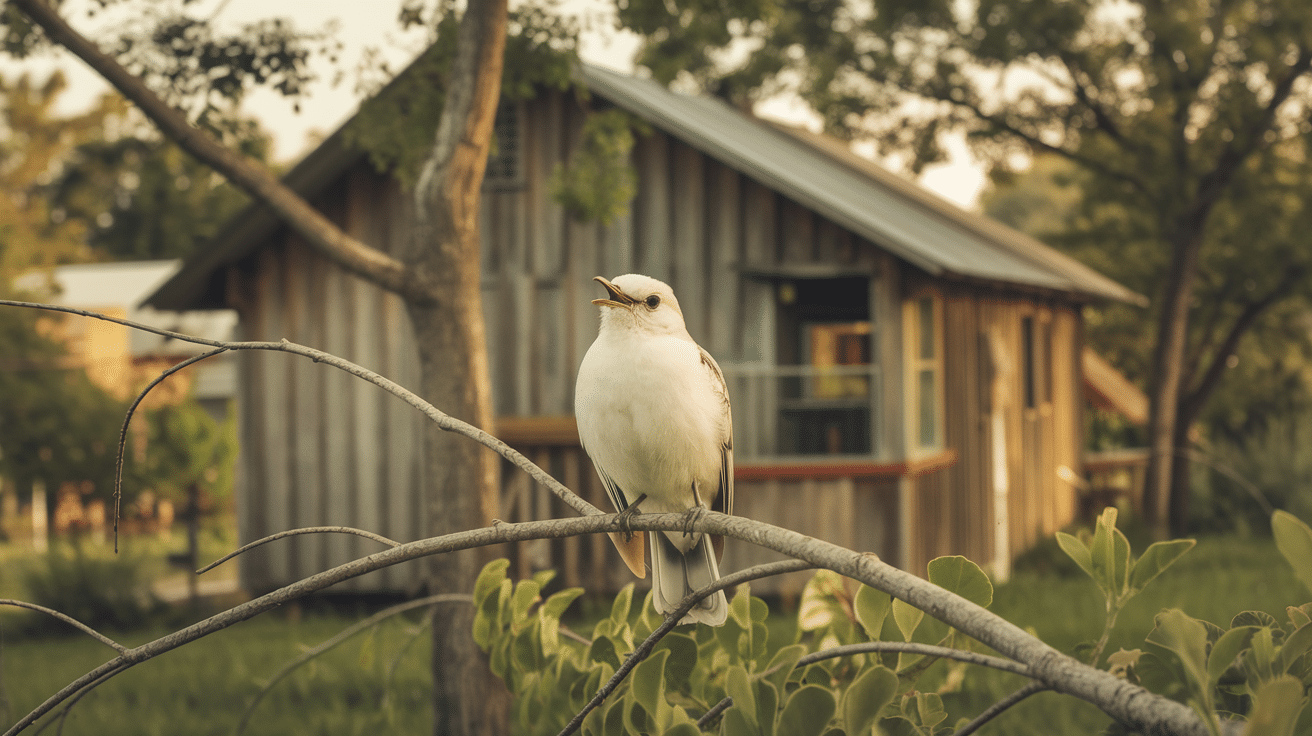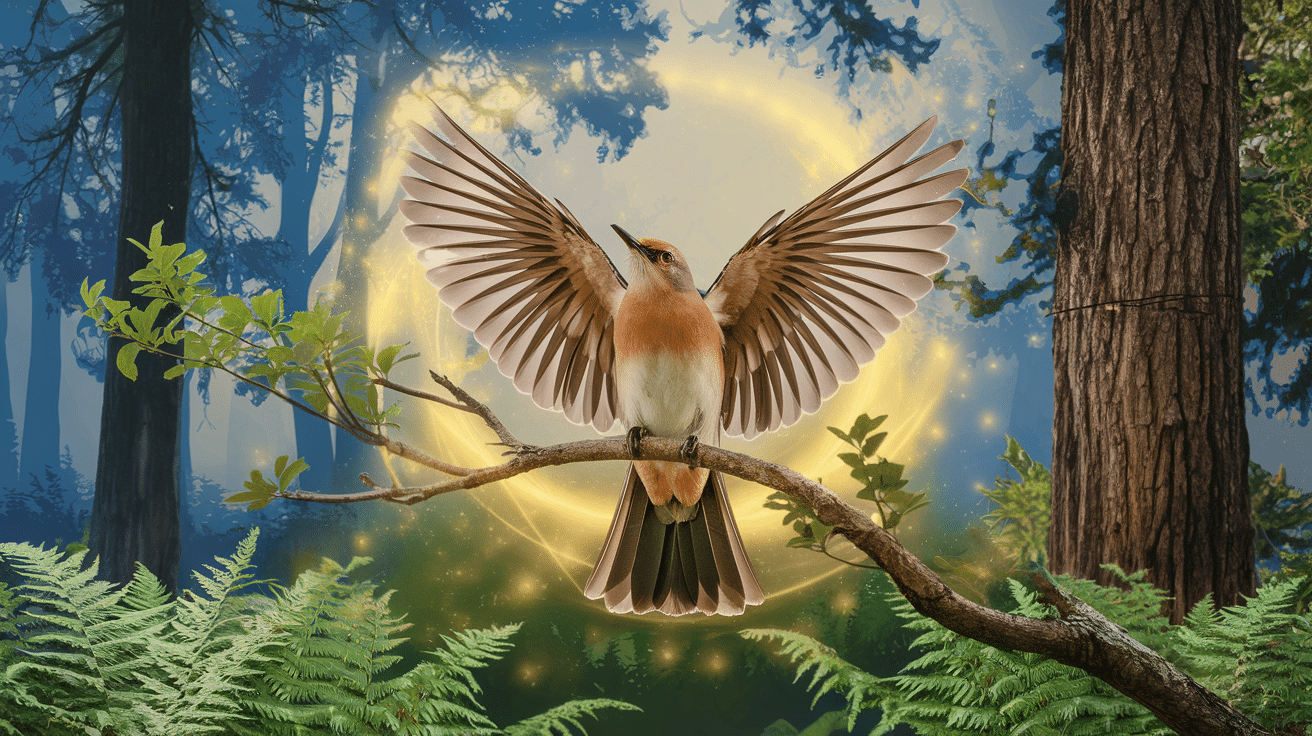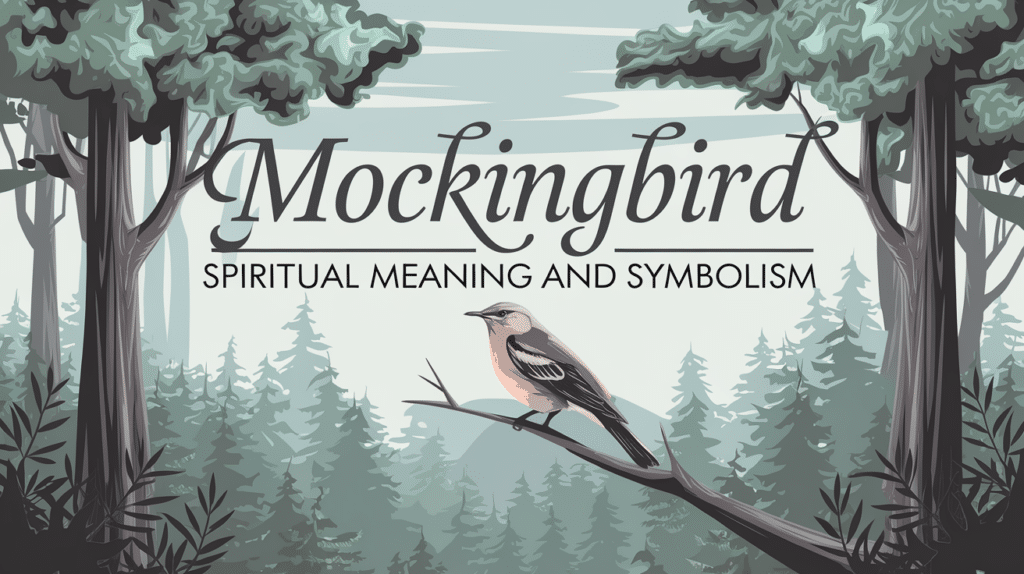The mockingbird spiritual meaning flutters through traditions as a messenger of meaning that goes beyond its melodious song. Many people find themselves drawn to this clever mimic when it appears repeatedly in their lives, and they wonder what message it might carry.
The mockingbird’s ability to learn and repeat the songs of other birds makes it a powerful symbol of communication and adaptation.
It challenges observers to find their original voice amidst life’s chaos. Throughout history, various cultures have associated these talented birds with protection, intelligence, and the courage to stand one’s ground.
When someone encounters a mockingbird during significant moments, it’s often seen as more than coincidence.
This remarkable creature invites curious souls to find its rich symbolism and find what personal wisdom it might be singing just for them.
Mockingbird Spiritual Meaning: What Does It Mean When You See One?

Encountering a mockingbird often carries significant spiritual weight.
Many believe these vocal mimics appear as messengers during times of soul-searching or when someone needs to speak their truth.
The mockingbird symbolizes courage, intelligence, and the importance of using one’s voice wisely. When one crosses paths with this bird, it might be suggesting the need to listen more carefully to others or to find one’s authentic expression.
What Does the Mockingbird Mean in Mythology?
In mythology, the mockingbird doesn’t feature as prominently as some creatures, but it still holds special significance.
Native American traditions view the mockingbird as a teacher and storyteller. The Cherokee, for instance, believed mockingbirds carried messages between this world and the spirit kingdom.
In some South American myths, mockingbirds are clever tricksters who use their mimicry to outsmart predators and even gods. These birds represent ingenuity and the power of adaptation, showing how intelligence can overcome physical limitations.
Mockingbird Biblical Meaning
The Bible doesn’t specifically mention mockingbirds, but birds in general appear throughout scripture as symbols of God’s providence and care.
Some Christian interpretations associate mockingbirds with Psalm 104:12, which speaks of “birds singing among the branches.”
Their gift of mimicry connects to themes of reflection and examination.
Other religious scholars draw parallels between the mockingbird’s protective nature toward its nest and biblical teachings about guarding one’s heart and family. Though not directly referenced, the mockingbird’s characteristics align with spiritual messages about finding one’s voice, standing firm in truth, and using gifts wisely.
What Does It Indicate When You Receive a Visit from A Mockingbird?

Timing of the Encounter:
When a mockingbird makes a special appearance in someone’s life, it often carries meanings greater than mere coincidence. These vocal visitors might show up during pivotal moments of change or decision-making, serving as nature’s gentle nudge toward self-reflection.
Many people report mockingbirds appearing repeatedly outside their windows or in their yards when they’re facing important life choices.
Interpreting Different Behaviors:
The context of the encounter matters significantly. A mockingbird singing joyfully at dawn might symbolize new beginnings and fresh perspectives on the horizon.
But the same bird defending its territory with fierce determination could be encouraging someone to protect their boundaries and stand up for their beliefs.
Mimicry as a Message:
Their famous ability to mimic other birds sometimes serves as a reminder to examine whether a person is living authentically or merely echoing others’ expectations.
Some spiritual practitioners believe mockingbirds appear when someone needs to find their voice; perhaps they’ve been silent too long on matters close to their heart.
Adaptation and Versatility:
Others see these encounters as invitations to develop greater versatility in communication styles.
The bird’s presence might suggest it’s time to adapt to new circumstances while maintaining one’s core identity, much like the mockingbird incorporates other songs while remaining distinctly itself.
Personal Reflection:
People often find that pondering the timing and circumstances of mockingbird visits reveals personal insights they might otherwise have missed.
These special moments connect humans to the natural world in ways that feel both mysterious and remarkable meaningful.
Mockingbird Spirit, Totem, and Power Animal Symbol

The mockingbird is highly symbolic in various spiritual traditions as a spirit guide, totem animal, and power symbol.
People drawn to this clever songbird often feel a connection to its unique qualities and symbolic meanings. Understanding these aspects can offer insight into personal growth and spiritual development.
Mockingbird as Spirit Animal
When the mockingbird appears as a spirit animal, it brings distinctive messages and energies to guide someone through life’s odyssey.
| Aspect | Meaning |
|---|---|
| Primary Message | Finding and expressing your authentic voice |
| Spiritual Gifts | Communication skills, adaptability, creative expression |
| Life Lessons | Learning to stand your ground while remaining flexible |
| Warning Signs | Mimicking others without developing your own identity |
| Healing Properties | Throat chakra alignment, emotional expression |
| When It Appears | During times of self-doubt or when you need the courage to speak up |
Mockingbird as Totem Animal
Those born with the mockingbird totem carry specific traits and tendencies throughout their lives.
| Characteristic | Description |
|---|---|
| Personality Traits | Witty, observant, protective, resourceful |
| Natural Talents | Verbal expression, quick learning, adaptability |
| Life Path | Teacher, communicator, and mediator between worlds |
| Challenges | May become scattered by trying to master too many skills |
| Strengths | Defending loved ones, finding creative solutions |
| Relationships | Loyal but requires space for individual expression |
Mockingbird as a Power Animal
Calling upon Mockingbird as a power animal invokes specific energies to assist in various situations.
| Purpose | Power Provided |
|---|---|
| Communication | Eloquence and persuasiveness when needed most |
| Protection | Courage to defend boundaries and loved ones |
| Creativity | Inspiration to blend different influences into something new |
| Learning | Enhanced ability to absorb and integrate new information |
| Resilience | Strength to face challenges with good humor and adaptability |
| Evolution | Support during periods of identity change and growth |
Understanding how the mockingbird operates in these different spiritual contexts helps people connect with its energy in meaningful ways.
Whether it appears as a guide, represents innate qualities, or offers power in times of need, this remarkable bird brings messages of vocal empowerment and creative adaptation.
Positive and Negative Relevance of Mockingbird
The mockingbird spiritual meaning holds a complex place in both nature and culture. As a creature known for its ability to mimic sounds, it carries symbolic weight across many contexts.
Looking at both the good and bad aspects of mockingbirds helps us understand their full impact. These birds offer interesting lessons about adaptation and communication while also presenting certain challenges in their interactions with humans and other species.
Positive Relevance
- Ecological Balance: Mockingbirds help control insect populations by consuming beetles, ants, wasps, and other potential pests, contributing to natural pest management.
- Garden Benefits: Their diet includes many insects harmful to gardens, making them natural allies for gardeners and farmers.
- Biodiversity Indicators: The presence of mockingbirds often indicates a healthy ecosystem with adequate habitat and food sources.
- Cultural Significance: Mockingbirds have inspired countless works of literature, music, and art, most notably, Harper Lee’s “To Kill a Mockingbird.”
- Territorial Guardians: Their protective nature helps shield other bird species from predators in shared habitats.
- Vocal Teachers: Young mockingbirds learn by mimicking, demonstrating worldly learning behaviors that scientists study to understand avian intelligence.
Negative Relevance
- Territorial Aggression: Particularly during nesting season, mockingbirds can become highly aggressive toward humans, pets, and other birds.
- Sleep Disruption: Their nighttime singing, while beautiful to some, can cause sleep disturbances for light sleepers living near mockingbird territories.
- Crop Impact: While primarily insectivorous, mockingbirds occasionally feed on fruits and berries, potentially affecting small-scale farmers.
- Nest Parasitism: Mockingbirds themselves can be victims of brood parasites like cowbirds, which can negatively impact mockingbird populations.
- Urban Adaptation Challenges: As urbanization increases, mockingbirds face challenges adapting to changing environments and habitats.
- Noise Competition: In urban environments, mockingbirds may sing louder and longer to compete with human-made noise, potentially causing stress to the birds.
Summing Up
The mockingbird’s melodious night serenades offer more than just acoustic beauty, and they connect us to remarkable spiritual dimensions while reminding us of their ecological significance.
While their territorial nature and nocturnal concerts may occasionally test our patience, their role as ecological balancers and spiritual symbols far outweighs these minor inconveniences.
By understanding mockingbird spiritual meanings and practical relevance, we develop deeper appreciation for these feathered philosophers.
Next time you hear a mockingbird’s midnight symphony, pause to receive its message; it might be carrying wisdom precisely tailored for your spiritual quest, inviting you to sing your own truth regardless of surrounding darkness.















